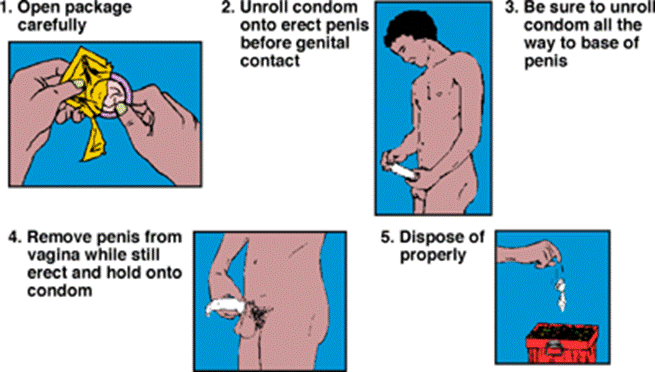A woman who has undergone a right-sided modified-radical mastectomy returns from surgery. Which nursing intervention would be most appropriate for the nurse to include in the client's plan of care at this time?
Encourage her to turn, cough, and deep breathe at frequent intervals.
Ask the client how she feels about having her breast removed.
Attach a sign above her bed to have BP, IV lines, and lab work on her right arm.
Position her right arm below heart level.
The Correct Answer is A
Choice A: Encourage her to turn, cough, and deep breathe at frequent intervals. This intervention is appropriate for the nurse to include in the client's plan of care at this time because it can help prevent respiratory complications such as atelectasis (collapse of lung tissue) or pneumonia after surgery. Turning, coughing, and deep breathing can help expand the lungs, clear the airways, and improve oxygenation.
Choice B: Ask the client how she feels about having her breast removed. This intervention is not appropriate for the nurse to include in the client's plan of care at this time because it may be too intrusive or insensitive. Asking the client how she feels about having her breast removed may trigger emotional distress or anxiety in the client who has just undergone a major surgery that affects her body image and self-esteem. The nurse should wait until the client is more stable and ready to talk about her feelings and concerns.
Choice C: Attach a sign above her bed to have BP, IV lines, and lab work in her right arm. This intervention is not appropriate for the nurse to include in the client's plan of care at this time because it is incorrect and potentially harmful. Attaching a sign above her bed to have BP, IV lines, and lab work in her right arm may cause injury or infection to the arm that has undergone surgery and lymph node removal. The nurse should attach a sign above her bed to have BP, IV lines, and lab work in her left arm instead.
Choice D: Position her right arm below heart level. This intervention is not appropriate for the nurse to include in the client's plan of care at this time because it is incorrect and potentially harmful. Positioning her right arm below heart level may impair the blood circulation and lymphatic drainage of the arm that has undergone surgery and lymph node removal. The nurse should position her right arm above heart level instead.
Nursing Test Bank
Naxlex Comprehensive Predictor Exams
Related Questions
Correct Answer is C
Explanation
Choice A: "Store your condoms in your wallet so they are ready for use." This statement is not correct and should not be included in the teaching plan. Storing condoms in a wallet can damage them by exposing them to heat, friction, or puncture. Damaged condoms can break or leak during sexual activity and increase the risk of STIs or pregnancy.
Choice B: "Use petroleum jelly with a latex condom for extra lubrication." This statement is not correct and should not be included in the teaching plan. Using petroleum jelly or any oil-based lubricant with a latex condom can weaken the latex material and cause it to break or slip off. Only water-based or silicone-based lubricants should be used with latex condoms.
Choice C: "Put the condom on before engaging in any genital contact." This statement is correct and should be included in the teaching plan. Putting the condom on before engaging in any genital contact can prevent the transmission of STIs or pregnancy by avoiding contact with pre-ejaculate fluid, semen, or vaginal fluid.
Choice D: "You can reuse a condom if it's within 3 hours." This statement is not correct and should not be included in the teaching plan. Reusing a condom can increase the risk of STIs or pregnancy by exposing the partner to residual fluid, bacteria, or sperm. A new condom should be used for each sexual act.

Correct Answer is B
Explanation
Choice A: Protrusion of the posterior bladder wall downward through the anterior vaginal wall is not the correct answer because it describes a different condition called cystocele. A cystocele occurs when the bladder pushes into the vagina due to weakened pelvic support structures.
Choice B: Bulging of the small intestine through the posterior vaginal wall is the correct answer because it describes an enterocele. Enterocele occurs when the small intestine slides into a pouch between the rectum and vagina due to weakened pelvic support structures.
Choice C: Descent of the uterus through the pelvic floor into the vagina is not the correct answer because it describes a different condition called uterine prolapse. Uterine prolapse occurs when the uterus drops down into or out of the vagina due to weakened pelvic support structures.
Choice D: Sagging of the rectum with the pressure exerted against the posterior vaginal wall is not the correct answer because it describes a different condition called rectocele. Rectocele occurs when the rectum bulges into or out of the vagina due to weakened pelvic support structures.
Whether you are a student looking to ace your exams or a practicing nurse seeking to enhance your expertise , our nursing education contents will empower you with the confidence and competence to make a difference in the lives of patients and become a respected leader in the healthcare field.
Visit Naxlex, invest in your future and unlock endless possibilities with our unparalleled nursing education contents today
Report Wrong Answer on the Current Question
Do you disagree with the answer? If yes, what is your expected answer? Explain.
Kindly be descriptive with the issue you are facing.
